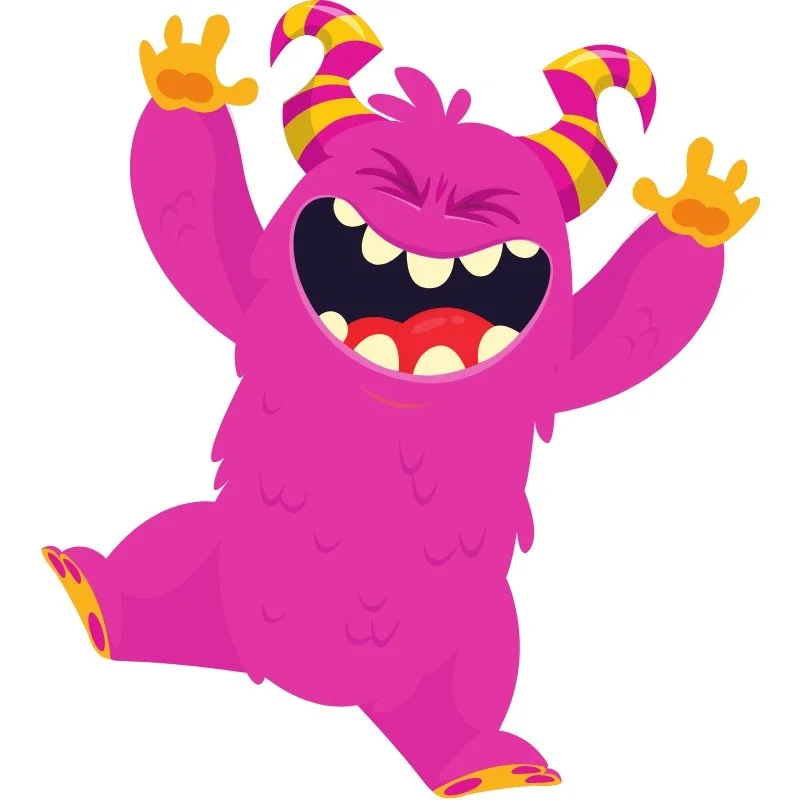Drudge – The Resignation, Emotional Exhaustion, Overwhelm, and Forced Functioning Monster
Drudge is one of the Visiting Neuro Monsters. Drudge represents the state of resignation and the heavy toll of emotional exhaustion that comes when you continue to function even while feeling completely depleted. Known as the Resignation, Emotional Exhaustion, Overwhelm, and Forced Functioning Monster, Drudge embodies the weary push to keep going when your system is already shutting down. Within the Neuro Monsters Universe, Drudge reveals how prolonged stress, overextension, and overwhelm can lead to burnout where you survive by routine but feel disconnected inside.
The Symbolic Role of Drudge
Drudge symbolizes the dim, dragging energy of survival without vitality. Its presence shows up when you feel weighed down by obligation, when you continue to function out of necessity rather than desire, or when exhaustion becomes your default state. Symbolically, Drudge represents the hollow movement of pushing forward without nourishment, the mechanical continuation of tasks when the spirit longs for rest. By naming Drudge you begin to notice when your functioning is survival-driven rather than life-giving.
Drudge often appears as a hunched, gray figure carrying heavy packs and chains, eyes dulled by fatigue. Its slow, trudging steps represent the weariness of forced functioning, moving forward only because standing still feels impossible. Facing Drudge with emotional neutrality allows you to recognize that exhaustion is not weakness but a signal of a system stretched too far.
Emotional Exhaustion and Overwhelm in the Brain
In neuroscience terms Drudge is tied to the hypothalamic-pituitary-adrenal (HPA) axis, the prefrontal cortex, and the insula. Chronic activation of the HPA axis floods the body with stress hormones, leading to fatigue and shutdown. The prefrontal cortex, overloaded by constant demand, struggles to plan or regulate effectively, resulting in decision fatigue and resignation. The insula magnifies the bodily signals of exhaustion, making every effort feel heavier.
Drudge symbolizes this neural collapse where stress responses run unchecked and energy systems fail to replenish. The brain and body adapt by forcing functionality at a cost, keeping you in cycles of burnout and disconnection.
The Protective Instinct Behind Drudge
Although it can feel crushing, Drudge’s instinct is protective. Resignation and exhaustion are the nervous system’s way of forcing slowdown when you cannot stop yourself. The purpose is to conserve energy, reduce risk of collapse, and maintain minimal functioning for survival. The challenge is that Drudge keeps you locked in survival mode, where life feels like an endless series of tasks without restoration. By seeing the protective purpose behind Drudge you can begin to treat exhaustion as a survival signal rather than a flaw.
Training with Drudge
Training with Drudge means learning how to restore energy and break the cycle of forced functioning. Cognitive Neuro Therapy emphasizes naming exhaustion neutrally and creating intentional pauses to reintroduce nourishment and rest.
When Drudge appears you can practice the following steps. Pause and acknowledge the heavy fatigue without judgment. Name it as exhaustion rather than laziness. Allow yourself micro-rest breaks, such as closing your eyes for one minute, breathing slowly, or stepping outside for fresh air. Shift focus from endless obligation to a single, manageable next step. Begin to reintroduce activities that restore vitality, even in small amounts, such as music, gentle movement, or meaningful connection.
Over time Drudge begins to soften not by disappearing but by being cared for. You learn that exhaustion signals the need for recovery, not punishment. By approaching Drudge with compassion, you transform forced functioning into intentional pacing. Drudge becomes a reminder that survival deserves gentleness and that rest is not optional but essential for true resilience.


